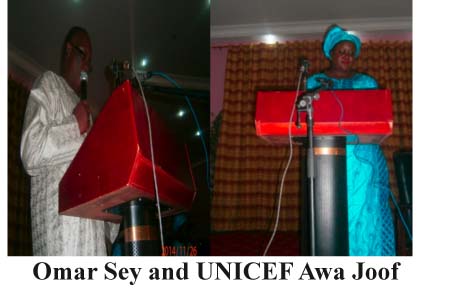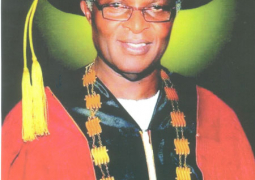
Held at the Sunswing Hotel in Kololi, the forum discussed issues of general concerns to stakeholders with the aim of improving child justice system in The Gambia.
Delivering the opening remarks, Omar Sey, Minister of Health and Social Welfare, said most children are experiencing lots of challenges, which has negative impact in their full development.
The Government of The Gambia, as a responsible authority, understands this critical momentum and recognizes the key role of Child Justice and child protection in advancing growth and reducing child poverty.
He added that children are faced with many challenges such as their involvement in drug abuse, which in most cases put them at high risk of mental illness and in conflict with the law.
He said the security sector has obligations to protect children and youth as victims, but also has obligations to the children and youth that it encounters as offenders or perpetrators, whether involved in criminal activity, violence or radicalization.
It was now critical to focus on all those challenges and address administrative, programme, policy, capacity and financing constraints to deliver effective child protection programmes and promote increased coordination, networking and efficiency among all actors working in Child Justice System and child Protection in the country, he said.
It was important to make sure that child protection policies and programmes are inclusive, as the government through support from UNICEF would be finalizing the child protection strategy plan by the end of 2014, he stated.
Awa Joof, UNICEF Child Protection Officer, said Justice for children is a strong component of UNICEF’s work on the protection of the rights of children’s and elimination of all forms of violence against children in all settings, including within the juvenile justice systems.
She said that across the world, violence at home, poverty and risky survival activities propel children into the Juvenile Justice System.
Once these children enter into the juvenile justice system, there is a real danger of their rights being infringed upon as numerous studies conducted in various countries worldwide have shown that children in the custody of the police or in criminal justice institutions are at a high risk of violence, which sometimes comes about as a result of the public perception of them as being criminals.
She added that the national child justice committee, which has been set up with the responsibility of advocating on the issue of child justice, is an important mechanism in realizing these objectives and it is important that it is given the necessary support to carry out its work in the coordination of child justice efforts.
Justice Kumba Camara, in her remarks on the occasion, said the judiciary fully recognizes and upholds juvenile justice administration high on its agenda as demonstrated in the expansion of the children’s court, from one to three, throughout the country.
She said the children’s courts are fully equipped thanks to support from UNICEF.
The judiciary would ensure that accountability within the children’s court is a central factor in the adjudication of juvenile justice.
Read Other Articles In Article (Archive)


